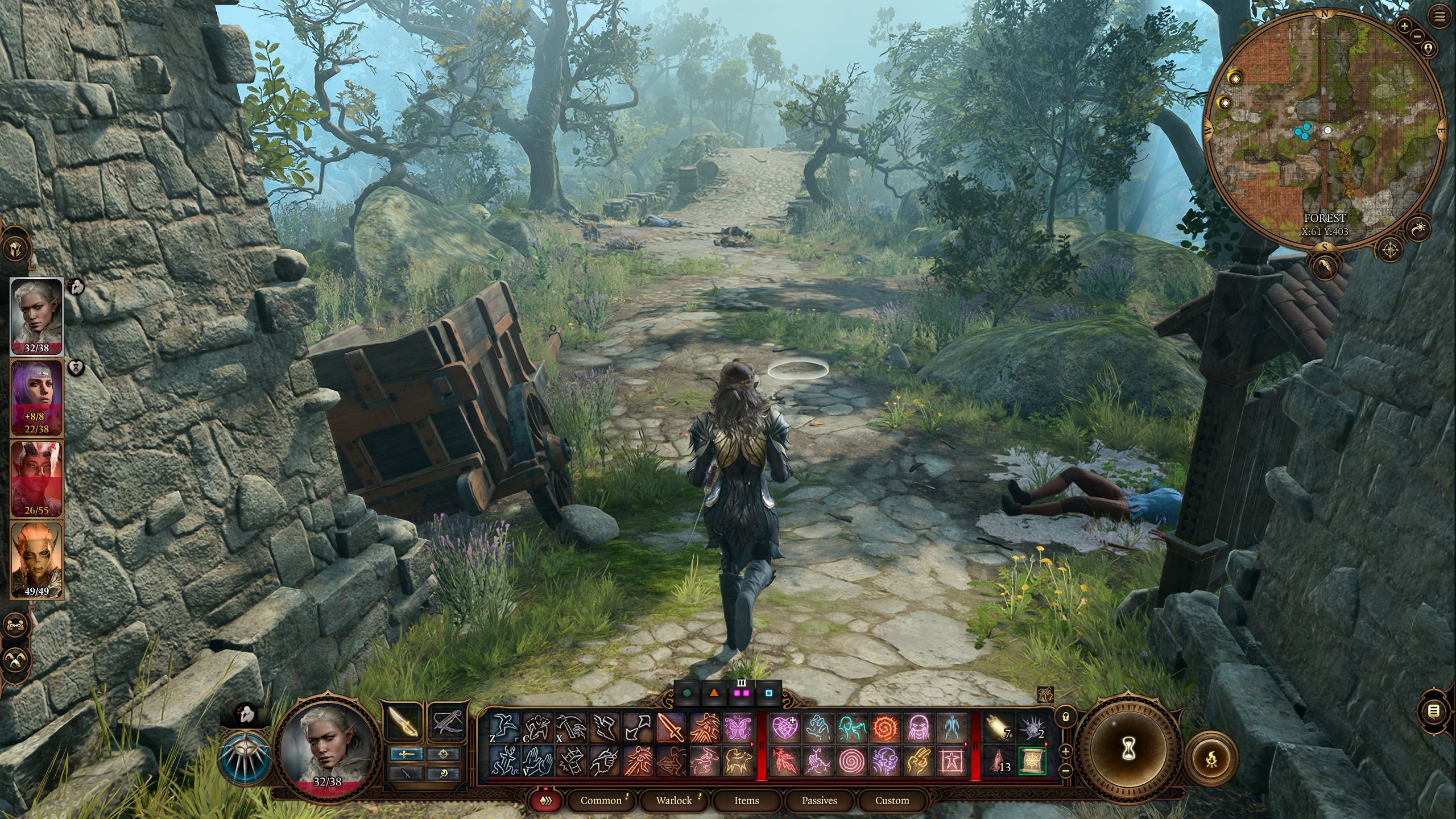
When the cleric in my party was killed by a massive floating eyeball, I thought I was screwed. I hadn’t saved in over an hour and my last autosave was right after the killing blow was struck. I managed to finish the fight, but my only healer was gone.
That’s when I remembered that I could pay someone to bring her back to life. All I needed was to give up almost every piece of gold I had. But this was Shadowheart, my closest companion. Whatever the cost, it was worth it. I handed over the gold and she was revived before my eyes.
That’s when an idea crossed my mind. An idea I’m not proud of.
What if I stole back the gold I just paid to have her revived? There’s no way the game would let me do that… right?
There is no right or wrong in Baldur’s Gate 3
It turns out that almost anything you can think of, Baldur’s Gate 3 (BGS 3) will let you do. It’s the closest we’ve ever come to having a video game version of Dungeons & Dragons, and that includes all of the shenanigans.
Is there a door that you can’t pick? Smash it to pieces with your mace. Is it too sturdy for that? Stack some barrels full of smoke powder and light a candle. Still can’t get it to open? Have the barbarian in your party pick up your gnome companion and hurl them through the window above.
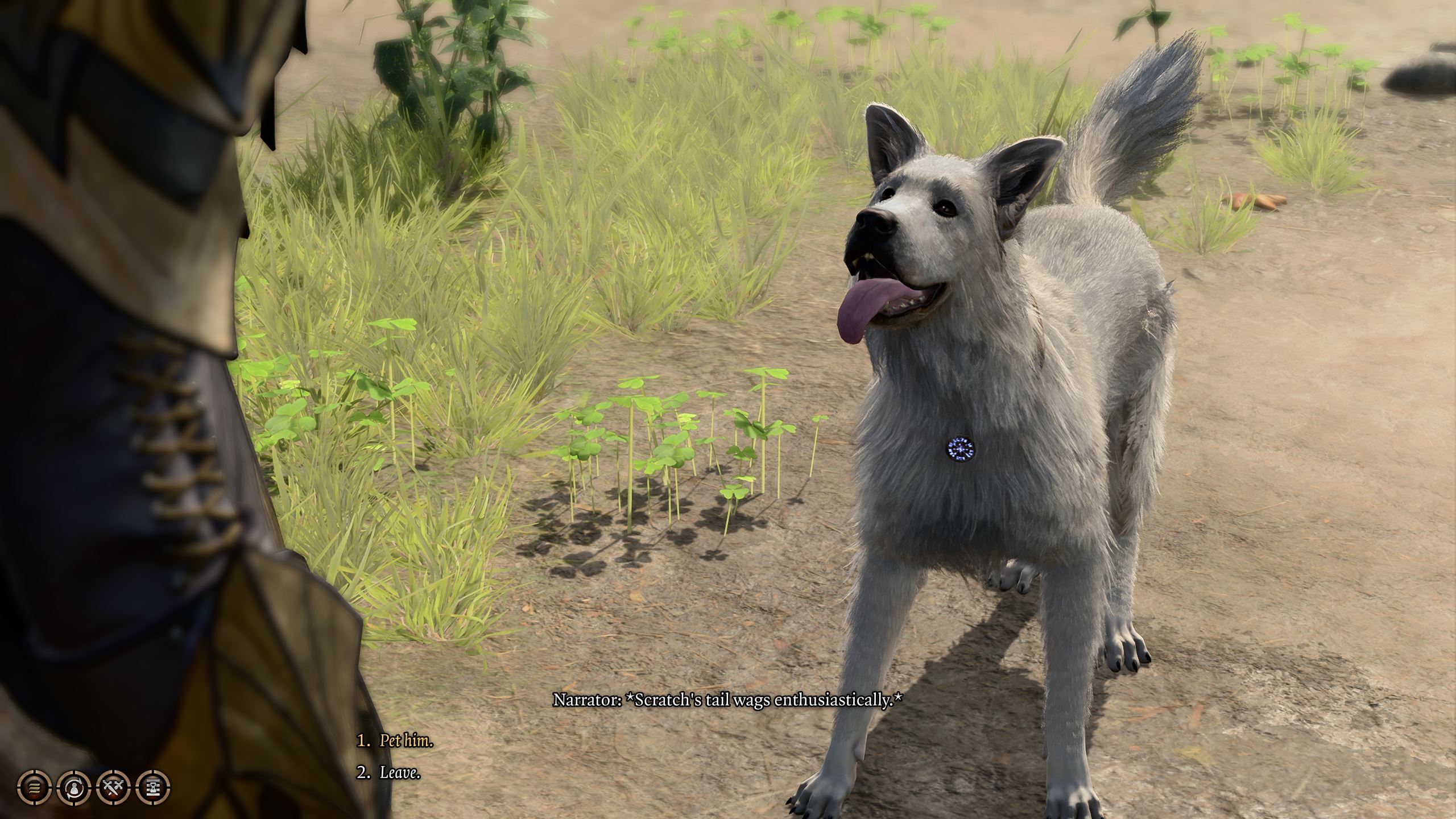 In a year with The Legend of Zelda: Tears of the Kingdom – a game praised for how it encourages creative problem-solving – Baldur’s Gate 3 stands out for its seemingly endless solutions to every situation. And that’s what D&D has always been about.
In a year with The Legend of Zelda: Tears of the Kingdom – a game praised for how it encourages creative problem-solving – Baldur’s Gate 3 stands out for its seemingly endless solutions to every situation. And that’s what D&D has always been about.
Growing up with D&D
I grew up surrounded by Dungeons & Dragons. My dad has been playing with the same group of players for more than 40 years, and my older sibling started playing well before they were in high school. Like any younger brother, I wanted to be included, so I rolled my own character. But while my sibling poured over every 3rd edition rulebook and created an in-depth backstory for their character, I was too embarrassed to fully embrace the role-playing. Before long, I stopped taking my seat at the table – a decision I would regret for years to come.
It felt like I’d walked away from my one chance to play D&D. I didn’t know if any of my friends would be open to playing and I was too shy to ask. I accepted that I’d likely never play again.
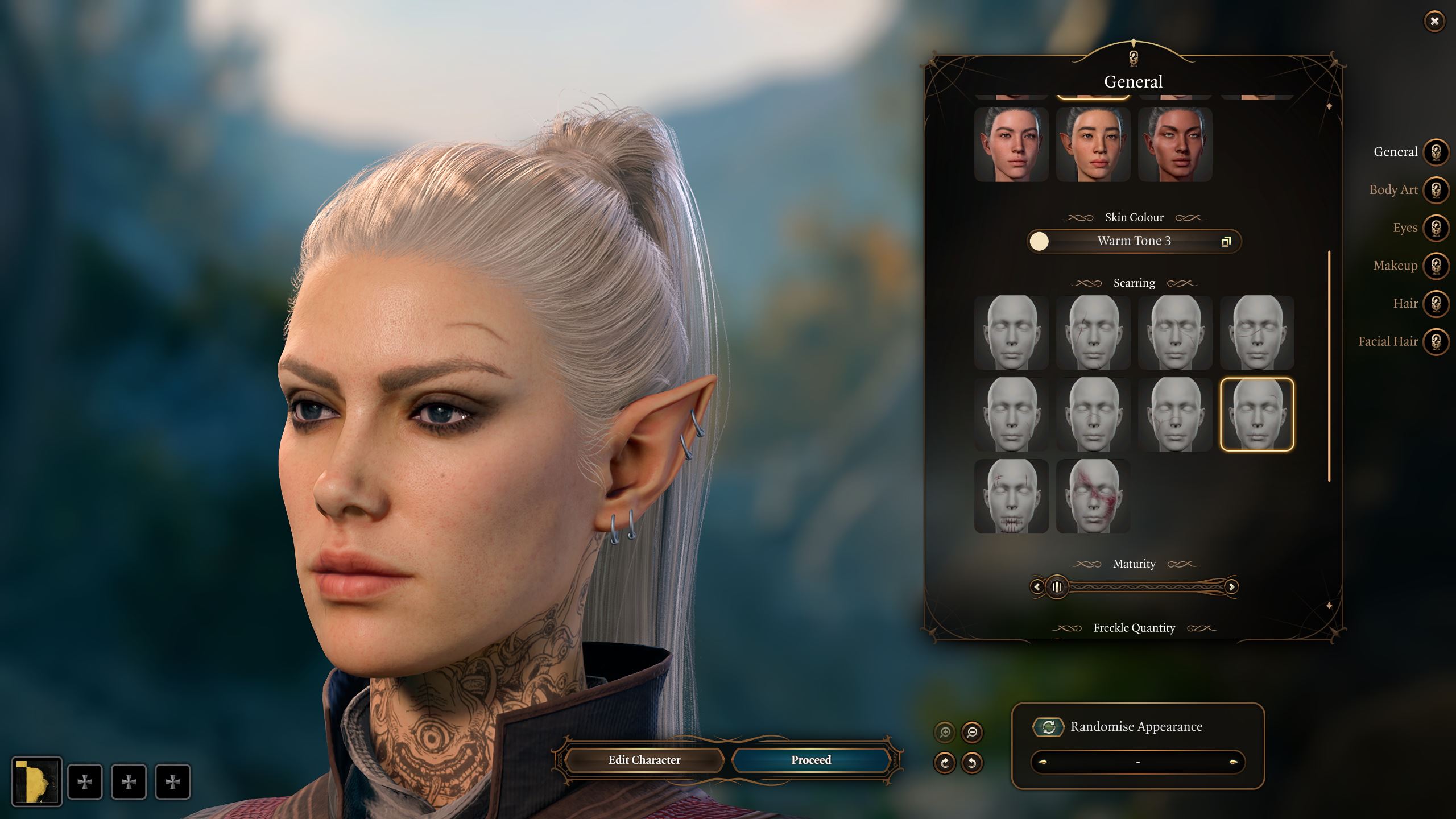 Then Baldur’s Gate 3 was announced.
Then Baldur’s Gate 3 was announced.
Baldur’s Gate is the D&D game. If I was going to learn D&D, this was my chance. No need to find a group of players — the game would act as both companion and Dungeon Master.
And damn, I was right. Baldur’s Gate 3 is the perfect way to learn Dungeons & Dragons.
Don’t stress over your choices
Baldur’s Gate 3 has one of the steepest learning curves I’ve encountered in a long time. From the moment you enter the character creator, you’re met with countless decisions. Will you play a melee character like a paladin or a barbarian, or will you take the path of a spellcaster? Do you want to be able to talk your way out of situations by casually convincing people that you’re on their side, or do you prefer to intimidate your opposition into seeing your way?
Whatever character you have in mind, you can probably bring them to life. For my playthrough, I decided to play a drow warlock with a special place in her heart for her coin purse. I quickly learned why Eldritch Blast has become a meme in the D&D community – you use it every turn in combat.
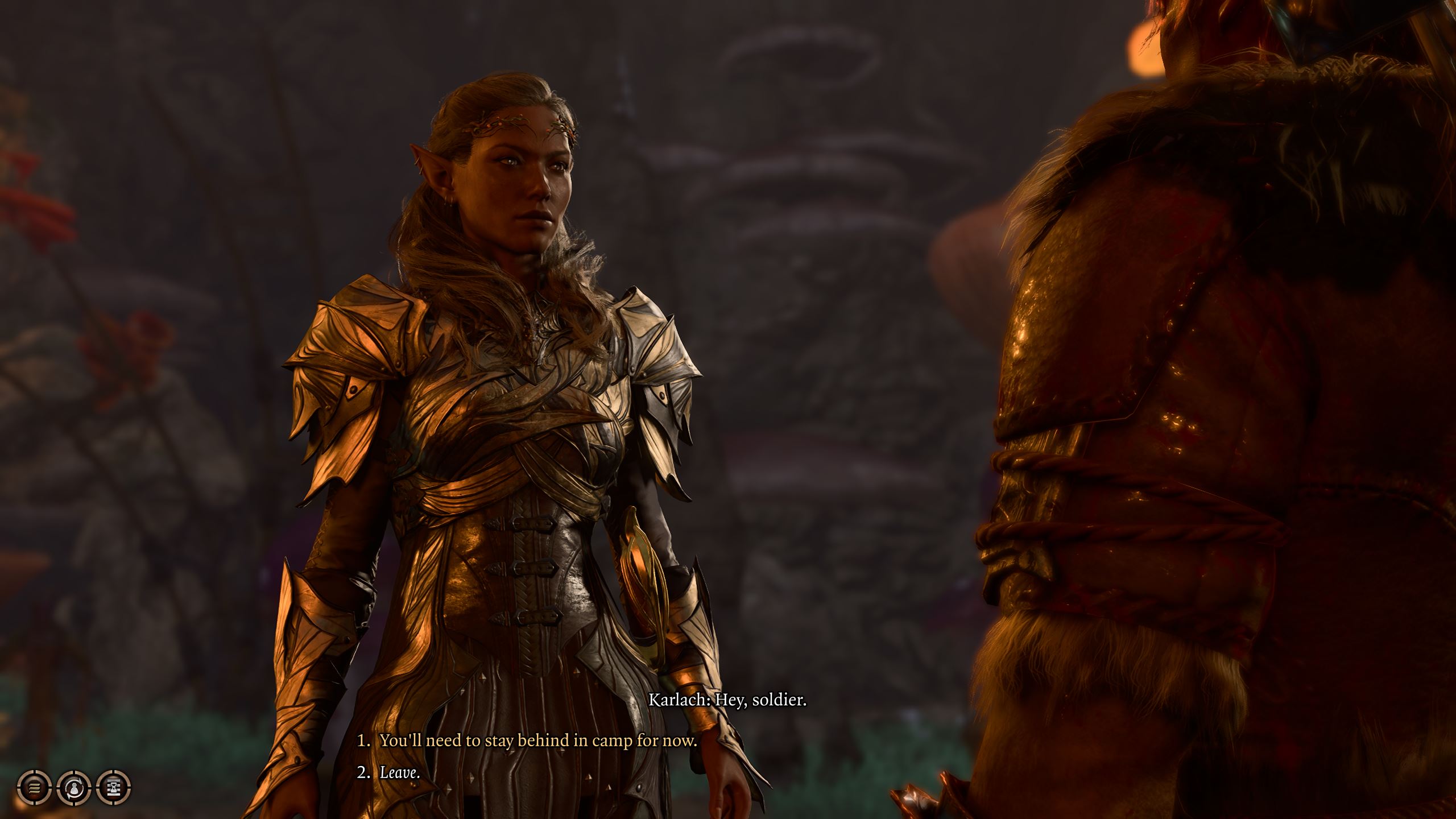 The best piece of advice that I can give for building a character (and the game in general) is to not stress about your choices too much. You can reroll your character at any point, and frankly, every build I’ve tried is viable and fun. Using Eldritch Blast all the time might sound like it would get boring, but thanks to the game’s RNG (random number generation), finally landing a critical hit feels so good. The same can be said for classes like rogues and monks. Though they’re considered weak in many other games, these classes provide crucial advantages that make them feel just as important as your fighters and sorcerers.
The best piece of advice that I can give for building a character (and the game in general) is to not stress about your choices too much. You can reroll your character at any point, and frankly, every build I’ve tried is viable and fun. Using Eldritch Blast all the time might sound like it would get boring, but thanks to the game’s RNG (random number generation), finally landing a critical hit feels so good. The same can be said for classes like rogues and monks. Though they’re considered weak in many other games, these classes provide crucial advantages that make them feel just as important as your fighters and sorcerers.
Even if you’re playing a class that isn’t on the front lines on the battlefield, you can be the one to lead the party when it comes to negotiations. And there are a lot of negotiations.
Rolling dice is the most satisfying combat mechanic of the year
If you’re just in Baldur’s Gate to stab goblins and smite undead, that’s totally fine. The game gives you the option to bypass a lot of its dialogue and get right back to bludgeoning your foes. But if you’re looking to role-play your way through the campaign, whether or not for righteous reasons, the game gives you plenty of chances to completely avoid combat – and maybe even bring your enemies over to your side.
Just like tabletop D&D, BG3 uses dice rolls to determine the outcomes of all your decisions. That goes for combat and conversations. If you’re being attacked by an ogre, you’d better hope that they fail their roll or you’re going to have a permanent new shape to your face.
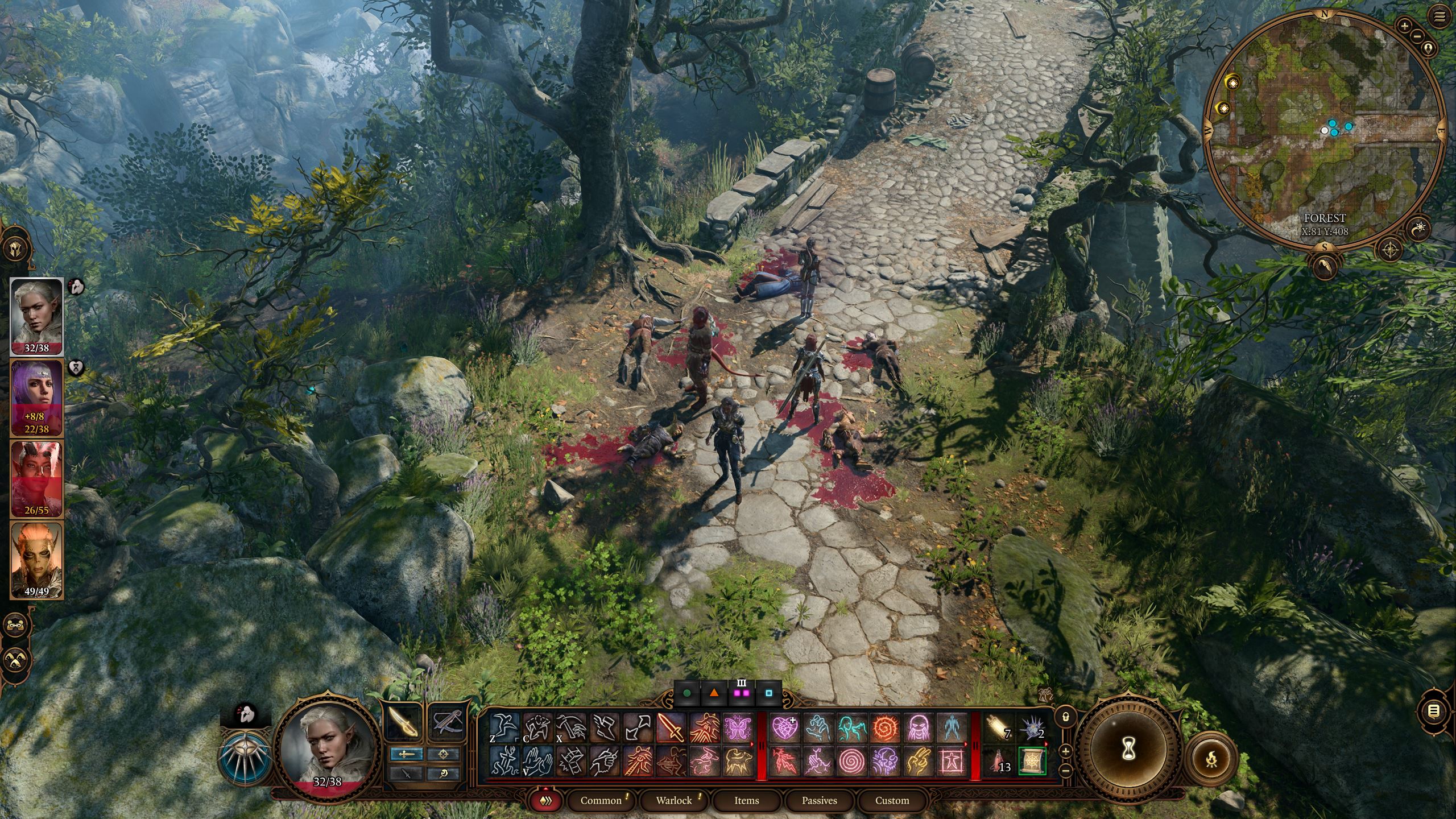 If you’re trying to convince that ogre that they should work for you because you’ll give them lots of opportunities to kill people, all you need to do is roll above a 15 and they’ll be at your beck and call. The developers have managed to make the dice rolls feel important every time they happen, not getting tiresome even after 100 hours of play. Rolling a natural 20 might be the best feeling of any game this year.
If you’re trying to convince that ogre that they should work for you because you’ll give them lots of opportunities to kill people, all you need to do is roll above a 15 and they’ll be at your beck and call. The developers have managed to make the dice rolls feel important every time they happen, not getting tiresome even after 100 hours of play. Rolling a natural 20 might be the best feeling of any game this year.
And yes, the campaign will likely take you upwards of 100 hours. The first act alone took me around 50 hours to complete. I’m a fairly meticulous player – I don’t like missing any story material – so your mileage may vary, but there is a lot of content here. If you’re playing with other players, you can expect that time to increase even further.
You can play the game bare or as a bear
I started playing Baldur’s Gate 3 to learn Dungeons & Dragons, and I think it’s fair to say I have a pretty good grasp on the rules at this point. But the best part is that the game hasn’t just taught me the basics of how to play, it’s given me a reason to finally reach out to people to play.
After my friends found out that you can have sex with a bear — technically a druid in bear form — their interest went way up. And believe me, that’s not the weirdest thing I’ve seen in the game. So now I have a full party of four that play together a couple of times a week.
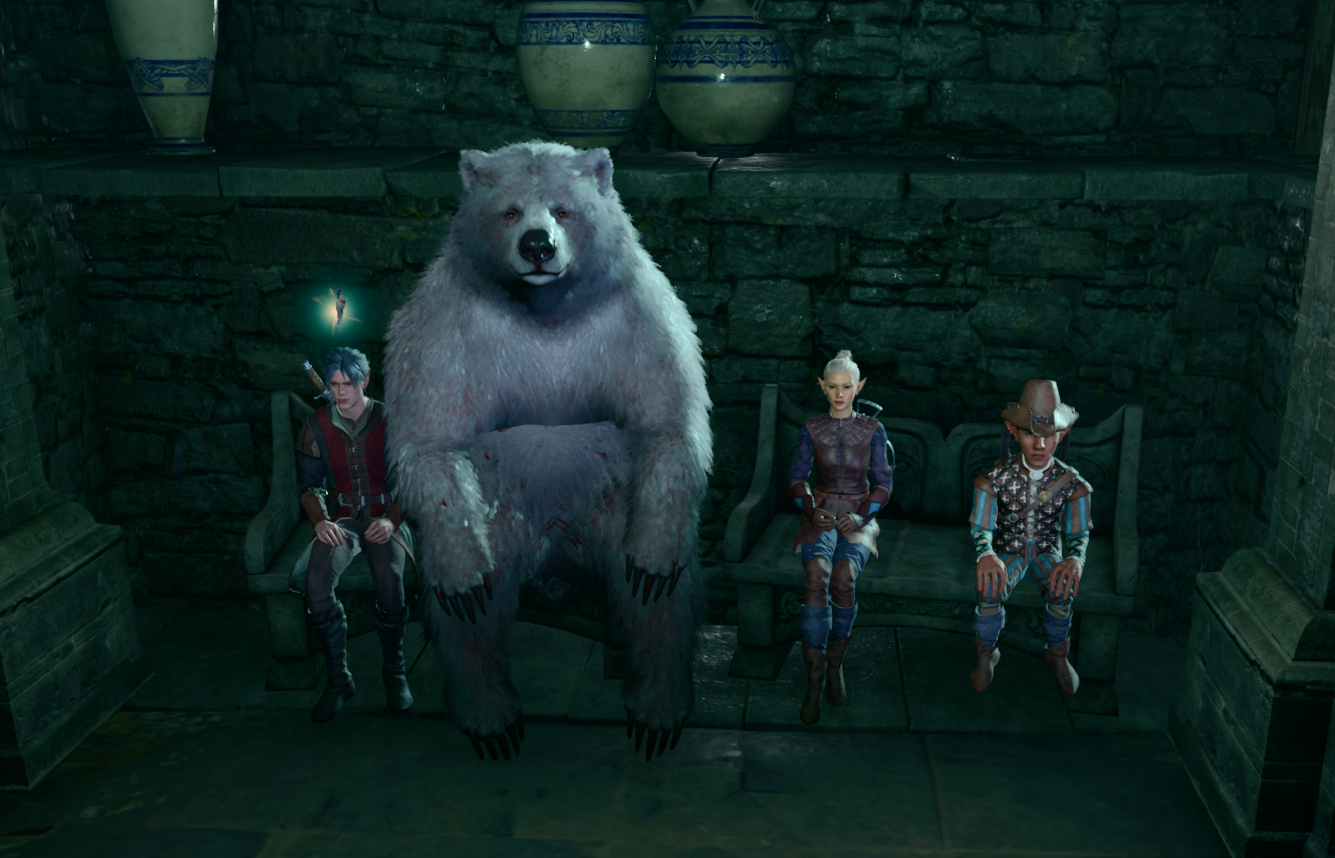 Best of all, my dad and I have started a campaign together. It’s been a great way to catch up with him, but it’s also been fascinating to see the game through the eyes of a tabletop veteran. As he was looking through our companions’ character sheets, he noticed that one of them was a follower of the goddess, Shar. Immediately he pushed for us to have them leave the party. When I first heard that, I had no idea what it meant, but from his years of D&D experience, he knew well that Shar was the goddess of darkness, and this probably wasn’t someone we should trust. And he figured that out in the first ten minutes of the game. Was he right? He’ll have to wait and find out.
Best of all, my dad and I have started a campaign together. It’s been a great way to catch up with him, but it’s also been fascinating to see the game through the eyes of a tabletop veteran. As he was looking through our companions’ character sheets, he noticed that one of them was a follower of the goddess, Shar. Immediately he pushed for us to have them leave the party. When I first heard that, I had no idea what it meant, but from his years of D&D experience, he knew well that Shar was the goddess of darkness, and this probably wasn’t someone we should trust. And he figured that out in the first ten minutes of the game. Was he right? He’ll have to wait and find out.
He plays the game like he’s role-playing, too. When he’s in a conversation, he doesn’t ask, “What would I do?” He thinks about what his paladin would do, even if that means striking down a skeleton before we’ve gotten all of the information out of them that we needed. I’ve taken his lead and started role-playing more as well, though that usually just means that he has to break me out of prison every time we reach a new town. What can I say? My character really likes trying on new outfits… even if they’re in someone else’s wardrobe.
There are consequences for your actions
I really do recommend not overthinking your choices. You can easily save every few minutes and save scum (reload a save to undo an undesirable outcome) your way through every situation, and there’s no shame in that. But some of the game’s best moments happen when things go horribly wrong. Even if you accidentally blow up half a camp of innocent tieflings, living with those consequences often leads to fascinating paths that you otherwise wouldn’t see. It’s one of the game’s greatest strengths.
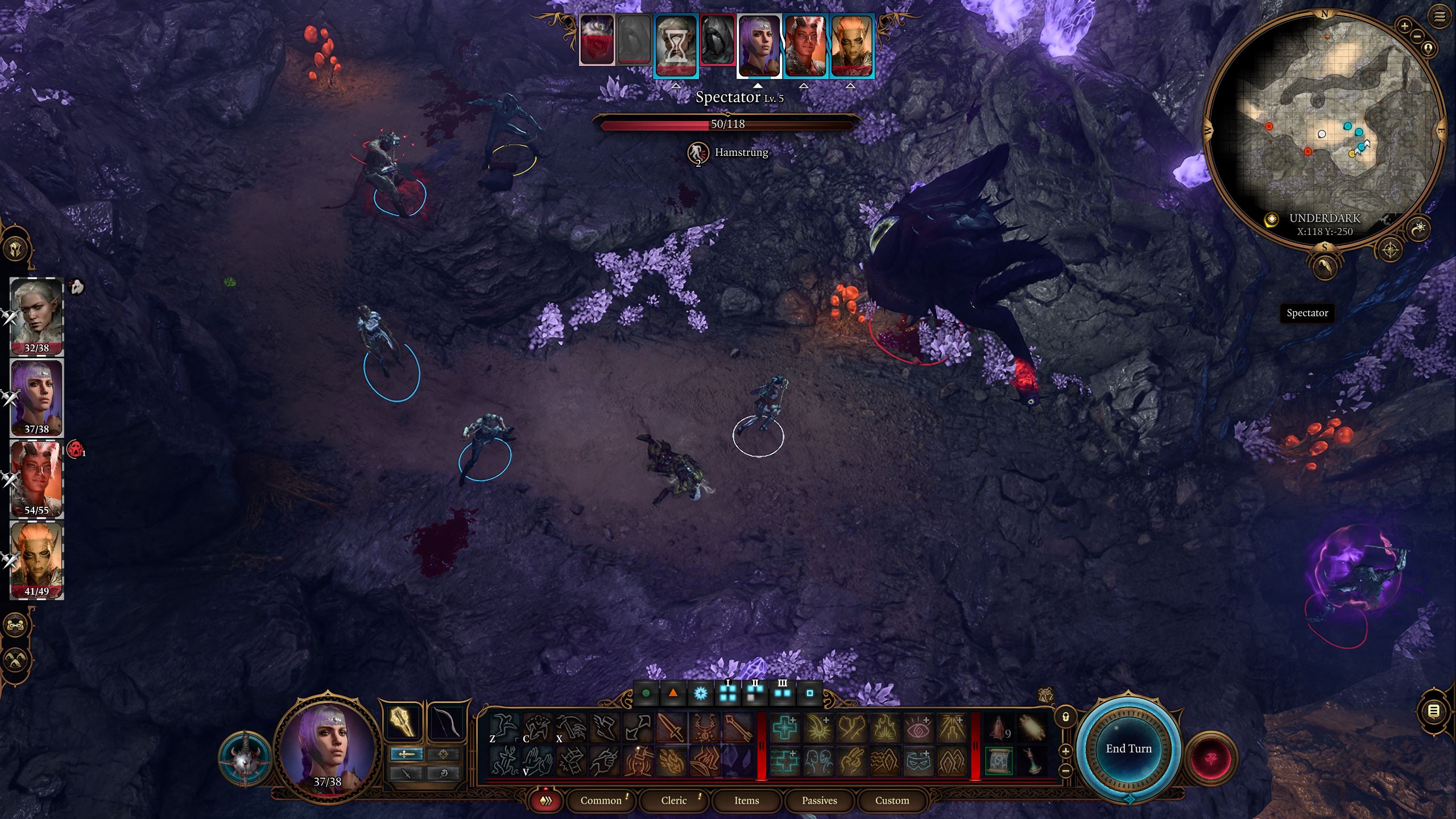 When I’m not writing for MobileSyrup, I write for TV. One of the earliest rules that we learn in screenwriting is that characters should constantly be put up against new barriers. You don’t say “This happens and then this happens.” You say, “This happens but then this happens.” It’s a subtle difference, but it ensures that your character is constantly challenged and has to face consequences for their actions. And that’s exactly what Baldur’s Gate does.
When I’m not writing for MobileSyrup, I write for TV. One of the earliest rules that we learn in screenwriting is that characters should constantly be put up against new barriers. You don’t say “This happens and then this happens.” You say, “This happens but then this happens.” It’s a subtle difference, but it ensures that your character is constantly challenged and has to face consequences for their actions. And that’s exactly what Baldur’s Gate does.
More than any other game I can think of, BG3 is reactive. Whatever choices you make, whether in terms of gameplay or narrative, the game will react accordingly. If you push somebody into a table that has wine bottles all over it, the wine will spill and they’ll have to make a saving throw to not slip on it. It makes the world feel alive. There’s only been a couple of instances where it felt like the game couldn’t understand what I wanted to do which broke that immersion.
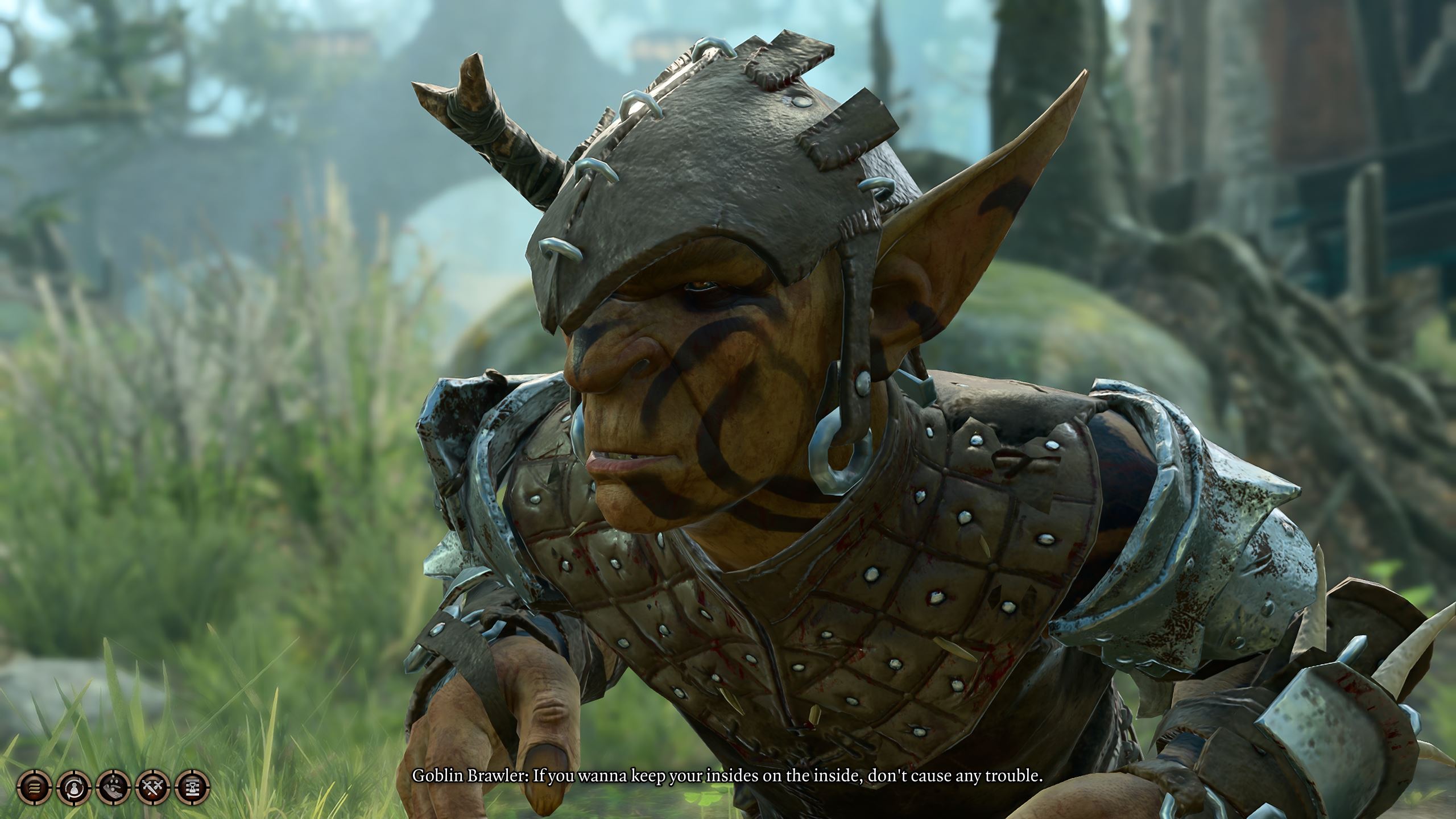 The best example I can think of was when I had a party member jump down to a lower ledge to grab some treasure, only to realize that they couldn’t jump far enough to get back up. I had rope in my bag, so I pulled it out thinking that I could toss it up to my other party members to have them hoist me back up. The game couldn’t figure out what I wanted to do with the rope, though. It eventually worked out because I had a potion to let my character fly, but it’s one situation where the game couldn’t quite live up to the tabletop experience.
The best example I can think of was when I had a party member jump down to a lower ledge to grab some treasure, only to realize that they couldn’t jump far enough to get back up. I had rope in my bag, so I pulled it out thinking that I could toss it up to my other party members to have them hoist me back up. The game couldn’t figure out what I wanted to do with the rope, though. It eventually worked out because I had a potion to let my character fly, but it’s one situation where the game couldn’t quite live up to the tabletop experience.
On the other hand, the game delivers an incredible narrative experience with deep characters, genuinely funny dialogue, and dark moments that are sure to catch players by surprise. It’s this sort of tailored experience that I’m sure even the best Dungeon Masters would struggle to pull off.
Every combat encounter is meaningful
Every character in the game is memorable, even the usual throwaway characters that should just be cannon fodder. You might be surprised to find out that you can talk to all of the goblins — and even the squirrels. If you have the ability to speak with animals, every creature from birds to horses can share their thoughts with you. And boy do they have thoughts.
I remember almost every conversation I’ve had in the game because it never feels like the game is talking at you, it’s speaking with you. The same can be said for combat encounters. I can’t think of many games where I can think back to almost every time I fought someone and remember some moment that stood out.
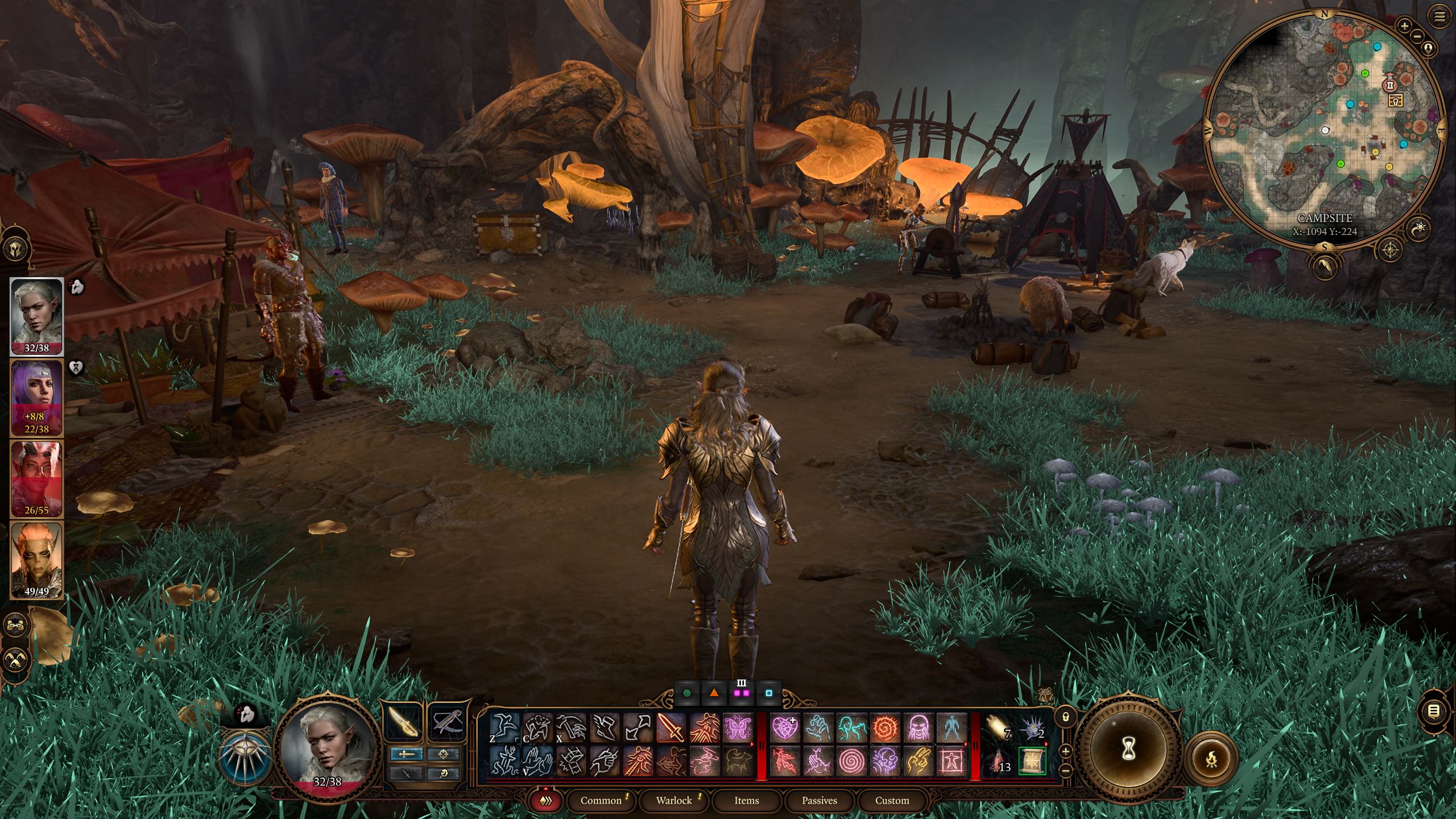 Baldur’s Gate 3 is a game that delivers on so many levels that writing about it feels like I’m not doing it justice. I’ve barely even touched on the party members and the way that they grow over the hours you spend with them. Just know that the narrative is every bit as compelling as the world around it.
Baldur’s Gate 3 is a game that delivers on so many levels that writing about it feels like I’m not doing it justice. I’ve barely even touched on the party members and the way that they grow over the hours you spend with them. Just know that the narrative is every bit as compelling as the world around it.
It’s a game that should be impossible. The sheer number of branching paths, variables in combat, and scale of its narrative have impressed me on all three of my playthroughs. Each new campaign has presented new challenges and possibilities. It works well as a single-player narrative game and it works just as well as a co-op adventure.
The game launches on PlayStation 5 and Mac on September 6th, and assuming that the game’s performance is up to snuff on those platforms, it’ll be in excellent shape for release. I’ve played the game on my PC and Steam Deck, and both have been great. For long sessions, though, my favourite way to play has been on my TV through Steam Link. Zooming in the camera and controlling the game like it’s Dragon Age has made it feel even more cozy, so it will be perfect on a console.
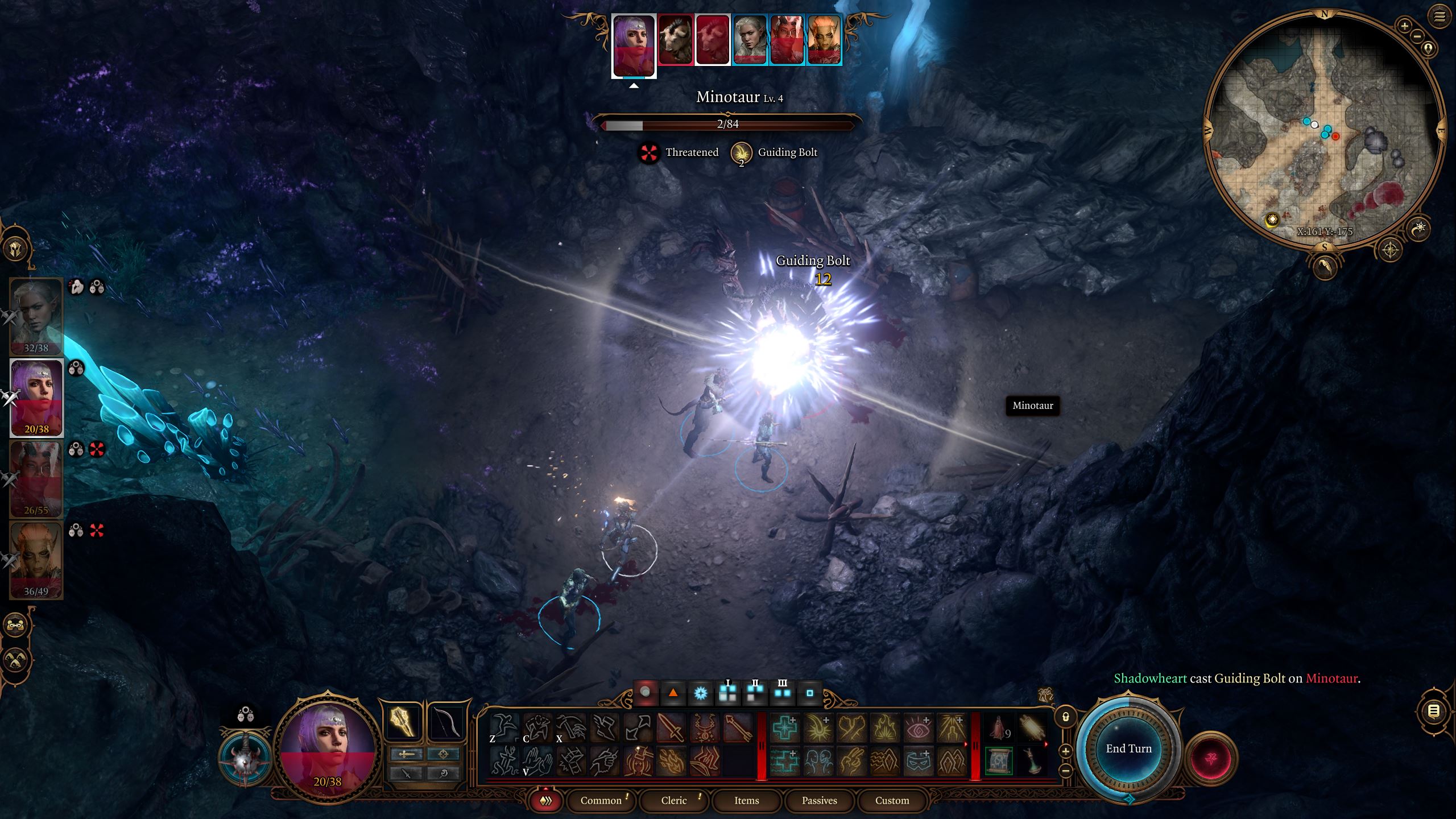 I have two last pieces of advice for when you boot the game up.
I have two last pieces of advice for when you boot the game up.
One, wear comfy clothes. Trust me, it’s hard to put down. And two, wear headphones. Even if it’s not bear sex, this game gets spicy.
You can buy Baldur’s Gate 3 on Steam for $79.99 or pre-order the game on PS5. The game is also coming to Xbox Series X/S, but a specific release date has not yet been revealed.
Image credit: Larian/Chris Brown
MobileSyrup may earn a commission from purchases made via our links, which helps fund the journalism we provide free on our website. These links do not influence our editorial content. Support us here.


